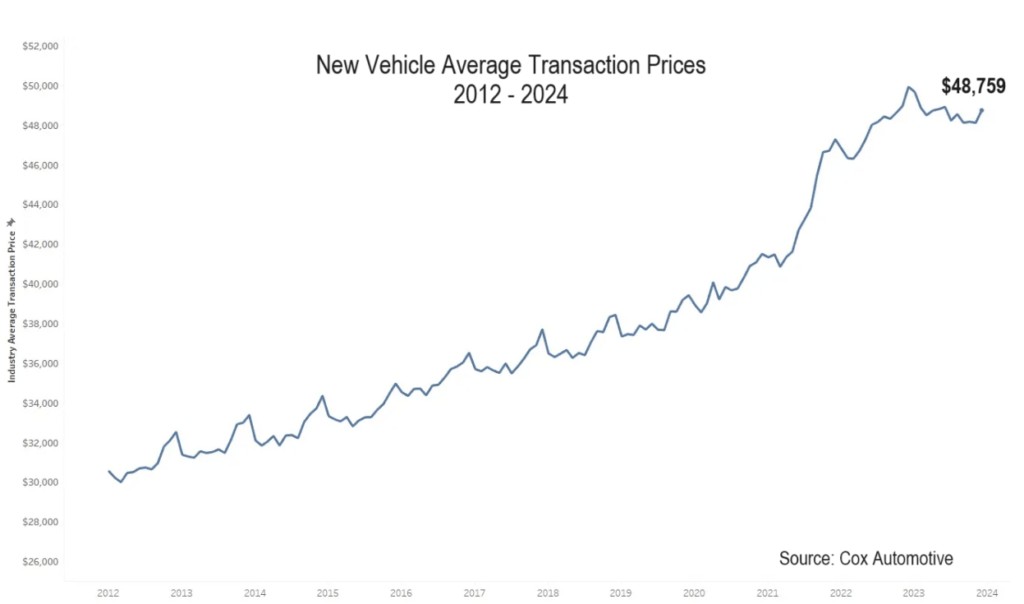With the average price of a new car soaring to nearly $50,000, it’s no wonder many are questioning the wisdom of buying new. This price tag puts new vehicles out of reach for many Americans, prompting the question: why is no one buying new cars? Let’s delve into the economic factors and lifestyle changes driving this trend.
The Price of Admission: New Cars vs. Used Cars
The stark price difference between new and used vehicles is a major deterrent. Kelly Blue Book reports the average transaction price for a new car hovers around $48,759, while used cars average around $27,000. This substantial $21,759 gap makes used cars a significantly more affordable option for many.
New Car Ownership: A Luxury for the Wealthy?
The high cost of new cars has transformed them into a status symbol, often associated with wealth. While a new car might convey prestige, many are embracing “stealth wealth,” opting for older, less expensive vehicles to avoid unwanted attention. The age of the buyer also plays a role in the perception of wealth. A 25-year-old driving a new Honda Civic might be seen as affluent, while a 60-year-old with the same car might be considered frugal due to higher earning potential later in life.
Economic Indicators and the New Car Market
Heavy traffic, often filled with new cars, might be frustrating for commuters. However, it can also be viewed as a positive economic indicator. Increased car sales suggest a thriving economy with rising household incomes, as demand for new vehicles typically reflects consumer confidence. This strong demand, coupled with supply chain disruptions and semiconductor shortages, has contributed to the inflated prices.
The Sting of Monthly Payments and Interest Rates
Record-high car prices translate to record-high monthly payments. The average monthly payment for a new car is approximately $734 in 2024, a significant jump from the pre-pandemic average of $570. Aggressive interest rate hikes by the Federal Reserve further exacerbate the financial burden of buying new.
The Financial Implications of Depreciation
New cars depreciate rapidly, losing a significant portion of their value in the first few years. This steep depreciation curve, coupled with the high initial cost, makes buying new a financially questionable decision for many, especially those striving for financial freedom.
Investing in Alternatives: Real Estate Over Vehicles
Instead of pouring money into a depreciating asset, many are prioritizing investments in appreciating assets like real estate. Building wealth through real estate offers long-term financial security and a stronger path to financial independence.
The Allure of Slightly Used Cars
While the allure of a new car smell is undeniable, the financial benefits of buying slightly used are often more appealing. A two or three-year-old car offers substantial savings without compromising significantly on features or reliability.
Conclusion: Rethinking the New Car Dream
The current economic landscape and rising car prices have made buying a new car a less attractive proposition for many. Factors like affordability, depreciation, and the desire for financial stability are pushing consumers towards more practical alternatives like used cars and real estate investment. While the allure of a brand new vehicle remains, the financial realities are forcing many to rethink the traditional new car dream.

